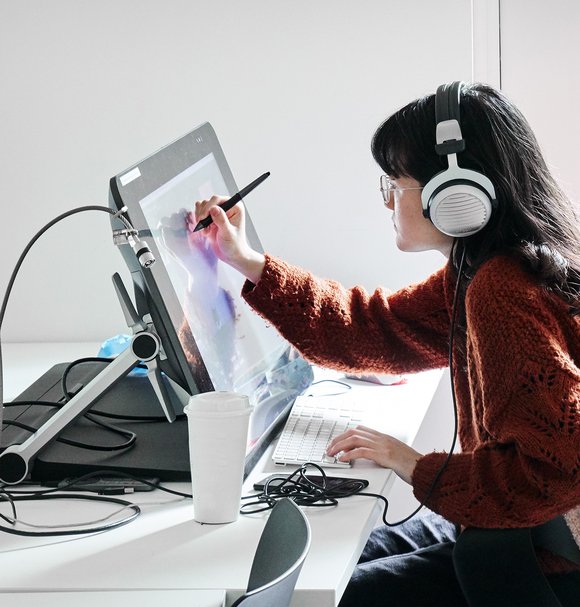
Key details
Date
- 27 January 2023
Author
- RCA
Read time
- 1 minute
The Royal College of Art (RCA) today unveils a major new multi-year partnership with Outernet London, the newly opened media and culture district in central London to showcase students' digital work on it's immense wrap-around immersive screens – the most advanced in the world. This ground-breaking educational partnership will see RCA students use Outernet’s world-leading interactive platforms to showcase their innovative digital work and immersive experiences.
Key details
Date
- 27 January 2023
Author
- RCA
Read time
- 1 minute
RCA students will have the opportunity to experiment with Outernet’s digital canvas of screens exhibiting their work throughout The Now Building, Pop One and Pop Two spaces, located next to Tottenham Court Road tube station. This is the most advanced immersive space in the world featuring 23,000 square feet of floor-to-ceiling, 360-degree, wraparound 16K screens across four storeys. Outernet London uses the latest immersive technology to create new experiences for music, arts, culture and creators.

The collaboration between the RCA and Outernet London will be a leading testbed for creative and digital art, design and storytelling, public engagement and innovation allowing Outernet and its wider community to engage with RCA student activity. The partnership will launch with the RCA Digital Direction showcase from 22 - 26 February 2023, featuring work created by students on the MA Digital Direction programme, which addresses the urgent need for inclusive and relevant storytelling using new technologies.
This five-day festival of digital artworks and performances including Virtual Reality, Augmented Reality, 360 video, games and multi-screen installations will demonstrate the power of connecting world-class technology with creative vision. Highlights include ‘Follow The Name’ by Yujie Wu, a captivating 3D video game which explores the deep connection between plants, places and people. The audience is invited to find their way out of a garden of camellias by listening to the sounds of people calling the camellias by their local names, reconnecting this plant with its place of origin. ‘Digital Death Masks’ by Aiden Shabka, an installation inspired by the death of physical identity, uses multi-screen generative video to showcase the continuous building and destruction of identities procedurally forged from fragments of individuals.
